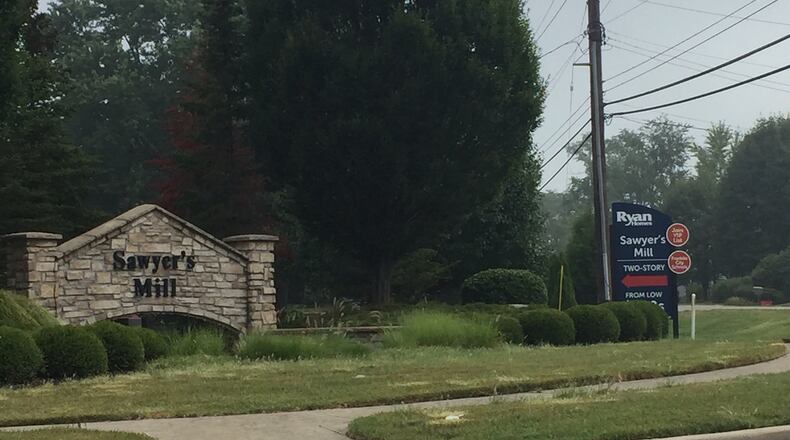MORE: Middletown closer to building new subdivision homes at Sawyer’s Mill
Ohio law allows county commissions to object to the creation of TIF districts if the exemption is more than 10 years, if the exemption percentage is more than 75 percent or both. If there is an objection, the county commission and the municipality can negotiate an agreement.
If the two sides cannot reach an agreement, the municipality will provide the county commission compensation beginning in the 11th year of the exemption period.
Last week, Warren County Auditor Matt Nolan raised the issue to the county commissioners.
“Residential TIFs is not something I would support,” Nolan told this news outlet. “They are not good government in my mind. It’s not a good policy.”
Nolan said the TIF agreements take tax dollars away from other voted levies for senior services, mental health, library, developmental disabilities as well as from the township and county general funds.
“I don’t think Ryan Homes should get any tax dollars that deprives other entities,” Nolan said.
He said the county commissioners have only approved one residential TIF in recent years and said it was not necessary to use this mechanism to promote more residential growth. Nolan said that incentive was used to clear lead from a former shooting range that became a subdivision.
Nolan also pointed out that municipalities and school boards negotiate revenue agreements as part of the TIF agreements in which municipalities will use their income tax dollars to make the school board whole in property taxes that are paid as service fees in lieu of taxes.
Franklin Schools Superintendent Michael Sander confirmed the Franklin school board and Middletown went through a lengthy process in working out their agreement. Sander declined to comment on details but said there will be a presentation at the school board’s Sept. 23 meeting where it will be considered for final approval.
Commissioner David Young said he was “very leery” of residential building incentives and micromanaging housing, noting only one has been approved in the past 15 years.
While he understands why Middletown is seeking to create the TIF district for the $4.08 million Sawyer’s Mill project that will add 16 to 17 more homes with an average price of $235,294, Young said he was “philosophically opposed to using this (TIF) tool to accomplish the goal. The free market generally works best.”
Young said the proposed exemptions would cost the county, township and voted levies about $350,000 over the proposed 30-year exemption period. He’s also concerned about the fairness if other entities choose to use the residential TIF mechanism in the future.
Jennifer Ekey, Middletown economic development director, issued the following statement in response to the county commission’s objection:
“The City and the County have a responsibility under the statutes to determine what an appropriate sharing of tax revenue may be for this site, balancing the needs for new infrastructure with the demands new residents place on various agencies. We continue to work with our partners on this project.”
On Sept. 11, the Middletown Planning Commission approved the development plan for that portion of the Sawyer’s Mill subdivision. Nearby residents were supportive of the project but did raise possible drainage and traffic issues. The planning commission recommendation will be considered for final approval by City Council in November. Construction of model homes could begin later this fall with new home building beginning in 2020.
In 2016, the city was approached by Republic Development, the developer of the Sawyer’s Mill subdivision at the time, to reengage in a conversation about development. City officials said the property had been through a lengthy and acrimonious court battle, ending in a consent decree, which stalled any new development. Republic had been talking to Ryan Homes, which had an interest in Middletown.
Construction of model homes could begin later this fall with new home building beginning in 2020.
About the Author

